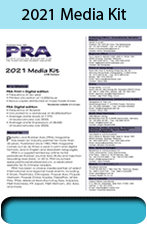M&As: Nouryon completes spin-out of Nobian; Borealis acquires minority stake in recycling firm

Nouryon, a global specialty chemicals firm, says it has completed of the spin-out of its base chemicals business, Nobian, into a separate company remaining under the ownership of Nouryon’s equity owners, The Carlyle Group and GIC.
“This is an important milestone, positioning Nouryon as a global specialty chemicals leader. Our focused strategy will allow Nouryon to grow and exceed our customers’ expectations by delivering innovative and sustainable solutions that answer society’s needs,” said Charlie Shaver, Chairman/CEO of Nouryon and Chairman of Nobian. “This enhanced focus allows Nouryon to benefit from an increasingly specialized and leading portfolio in Performance Formulations and Technology Solutions, driven by resilient and growing end-markets.”
The transaction positions the two companies to achieve their full potential in their respective focus areas:
- Nouryon, a global firm providing essential, sustainable solutions for manufacturing everyday products including personal care, cleaning goods, paints and coatings, agriculture and food, pharmaceuticals, and building products. The company employs about 7,900 people in over 80 countries and had revenues in 2020 of EUR3.7 billion.
- Nobian, a European firm in the production of essential base chemicals for industries ranging from construction and cleaning to pharmaceuticals and water treatment. The company employs about 1,600 people and had revenues in 2020 of EUR1 billion.
As part of the spin-out transaction, Nouryon repaid EUR1.5 billion of its debt with the proceeds of a completed external financing by Nobian. To help ensure a seamless transformation, Nouryon will continue to provide transitional support services to Nobian across multiple functional areas.
In other news, chemical firm Borealis says that it has entered into a multi-dimensional partnership with Renasci N.V., a provider of recycling solutions and creator of the novel Smart Chain Processing (SCP) concept. Having acquired a 10% minority stake in the company, Borealis says it will collaborate closely with Renasci to evolve and scale up the SCP technology. This includes the development of future facilities which would source their feedstock entirely from household waste. The two companies also plan to identify and act on other promising investment opportunities in the circular economy sphere. In addition to the recently announced agreement to source the projected 20 kilotonnes/year circular pyrolysis oil, Borealis is also planning to purchase mechanically recycled material from Renasci’s Oostende facility.
The partnership is another key enabler for Borealis to realise its ambitions to bring circular base chemicals and polyolefins to market, and to deliver on its promise to bring 350 kilotonnes of recycled polyolefins into circulation by 2025.
The SCP concept developed by Renasci is a proprietary method of maximising material recovery in order to achieve zero waste. It is unique because it enables the processing of multiple waste streams using different recycling technologies – all under one roof. At the newly-built Renasci SCP facility in Oostende, Belgium, mixed waste – plastics, metals, and biomass – is automatically selected and sorted multiple times.
After sorting, plastic waste is first mechanically recycled, and then in a second step any remaining material is chemically recycled into circular pyrolysis oil and lighter product fractions, which are used to fuel the process.
Other types of sorted waste such as metals and organic refuse are further processed using other technologies. In the end, only 5% of the original waste remains, and even this residual material is not landfilled, but used as filler in construction materials. Because of this extremely efficient way of processing, the overall CO2 footprint of these waste streams is greatly reduced – yet another advantage of the circular SCP concept.
Borealis’s says its circular cascade model sits at the heart of its ambition to achieve a truly circular economy, by combining carefully chosen technologies in a complementary and cascading way to achieve full circularity. In this way, Borealis aims to give plastic products multiple lifetimes in the most sustainable way possible. Starting with optimising product design, first for eco-efficiency, then for re-use and finally for recycling. The valorised material from mechanical and chemical recycling is then processed with Borealis Borcycle recycling technology consisting of Borcycle M for mechanical recycling and Borcycle C for chemical recycling, providing high quality solutions for more sophisticated applications, such as food packaging and healthcare.
The SCP concept is aligned to Borealis’ ambition to close the loop on plastic waste as encapsulated in its circular cascade model.
“This partnership is a huge leap in the transition to a circular economy: the combination of Borealis’ industry experience and know-how and our innovative SCP concept paves the way for uniquely efficient path to maximum material recovery and zero waste. Joining forces means we can further develop and implement the SCP concept and identify future areas of action to transition to true circularity”, commented Kristof Beuren, Renasci CEO.
(PRA)
Subscribe to Get the Latest Updates from PRA Please click here
©2021 Plastics and Rubber Asia. All rights reserved.

©2020 Plastics and Rubber Asia. All rights reserved.
Home Terms & Conditions Privacy Policy Webmail Site Map About Us
















